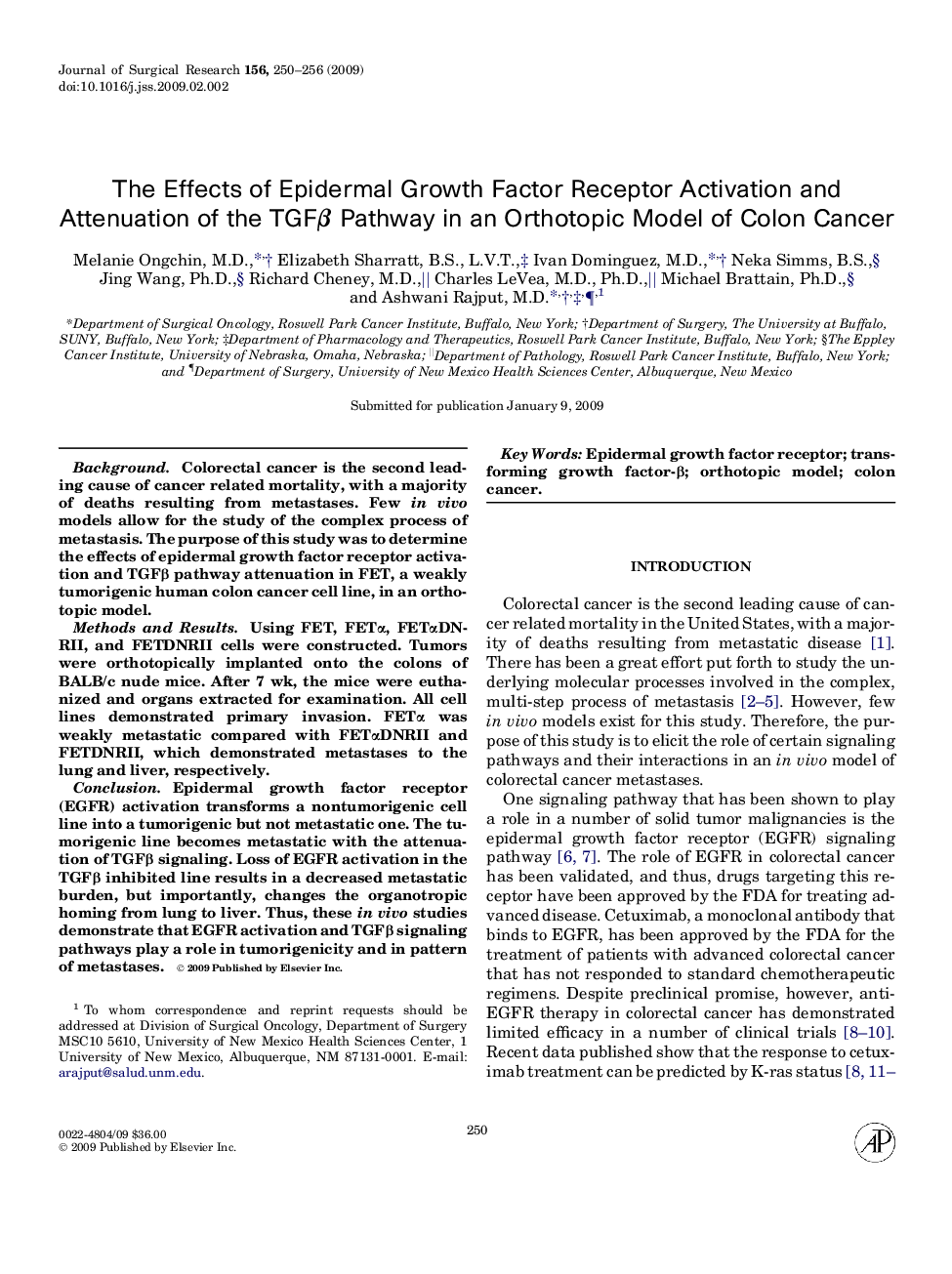| Article ID | Journal | Published Year | Pages | File Type |
|---|---|---|---|---|
| 4303256 | Journal of Surgical Research | 2009 | 7 Pages |
BackgroundColorectal cancer is the second leading cause of cancer related mortality, with a majority of deaths resulting from metastases. Few in vivo models allow for the study of the complex process of metastasis. The purpose of this study was to determine the effects of epidermal growth factor receptor activation and TGFβ pathway attenuation in FET, a weakly tumorigenic human colon cancer cell line, in an orthotopic model.Methods and ResultsUsing FET, FETα, FETαDNRII, and FETDNRII cells were constructed. Tumors were orthotopically implanted onto the colons of BALB/c nude mice. After 7 wk, the mice were euthanized and organs extracted for examination. All cell lines demonstrated primary invasion. FETα was weakly metastatic compared with FETαDNRII and FETDNRII, which demonstrated metastases to the lung and liver, respectively.ConclusionEpidermal growth factor receptor (EGFR) activation transforms a nontumorigenic cell line into a tumorigenic but not metastatic one. The tumorigenic line becomes metastatic with the attenuation of TGFβ signaling. Loss of EGFR activation in the TGFβ inhibited line results in a decreased metastatic burden, but importantly, changes the organotropic homing from lung to liver. Thus, these in vivo studies demonstrate that EGFR activation and TGFβ signaling pathways play a role in tumorigenicity and in pattern of metastases.
